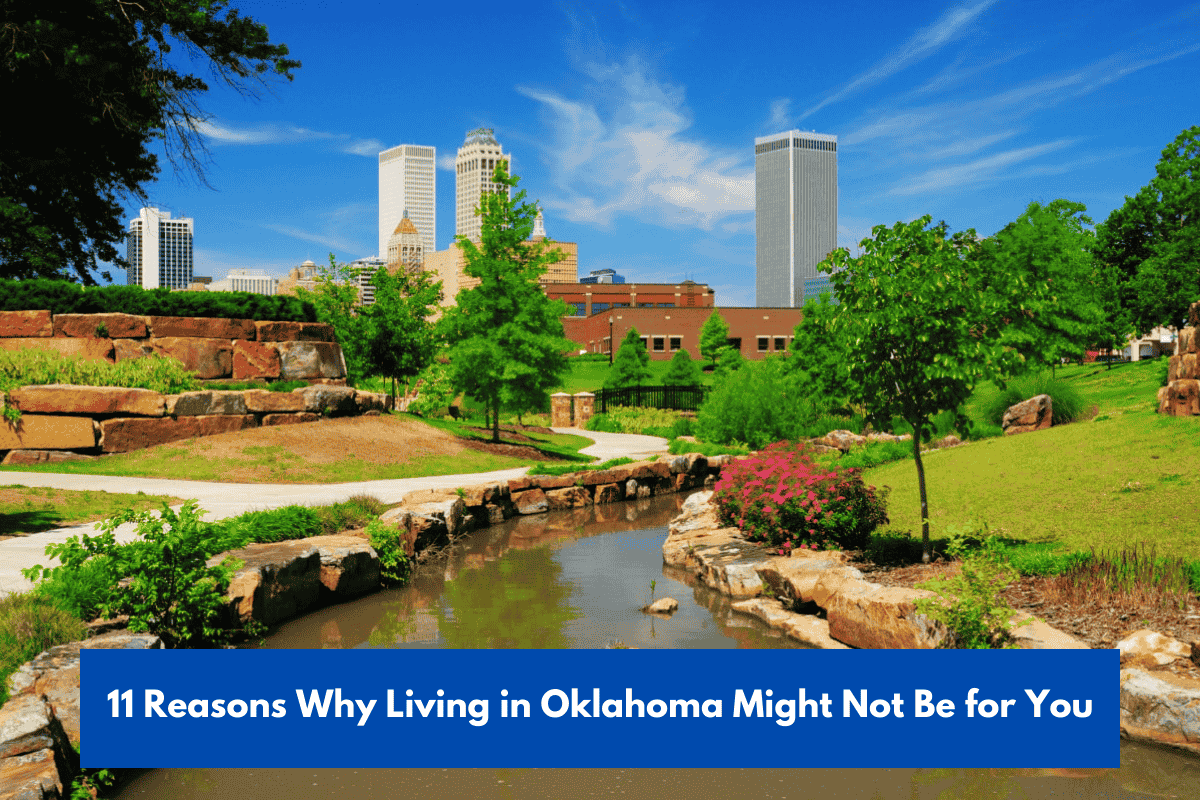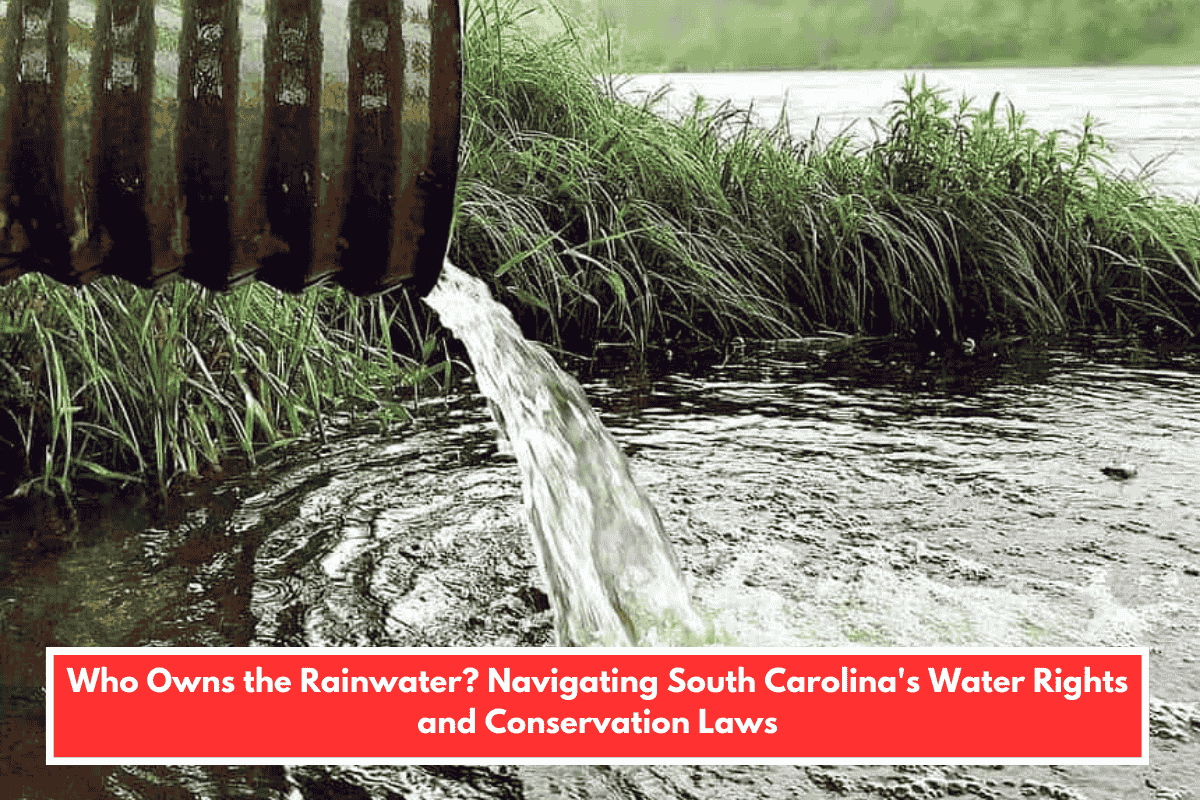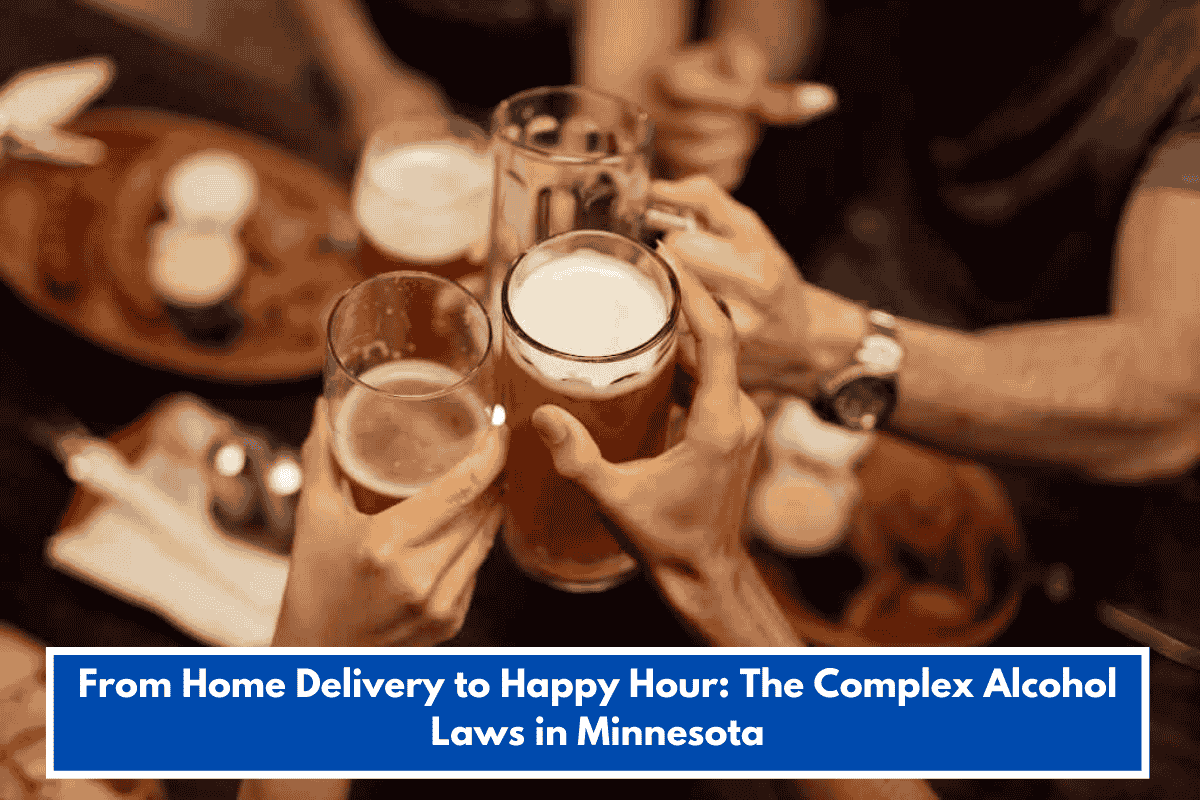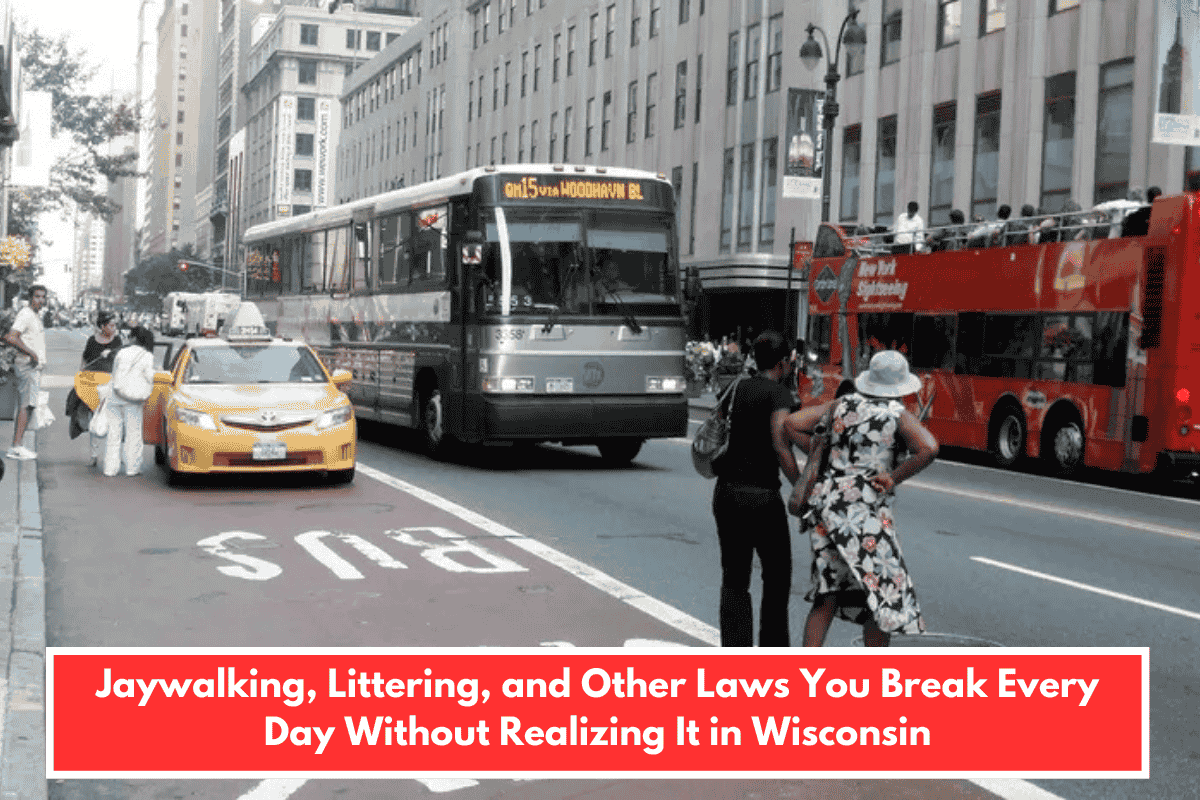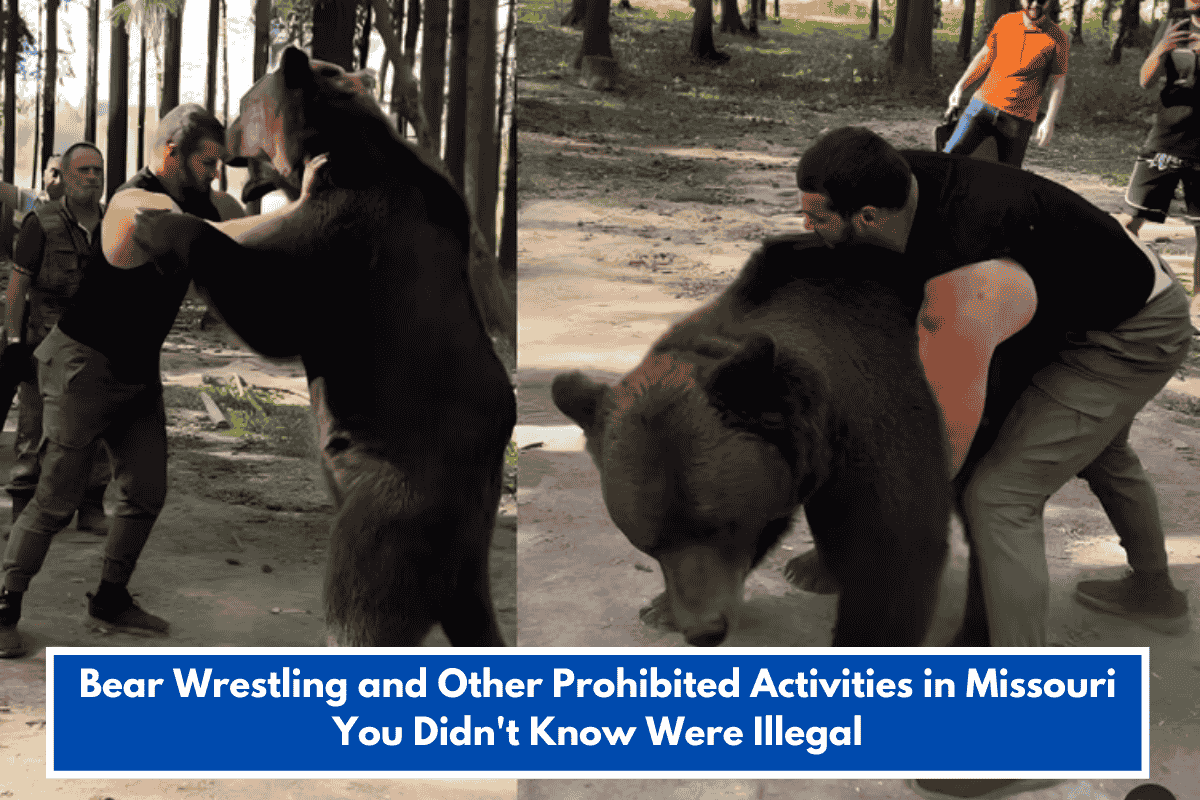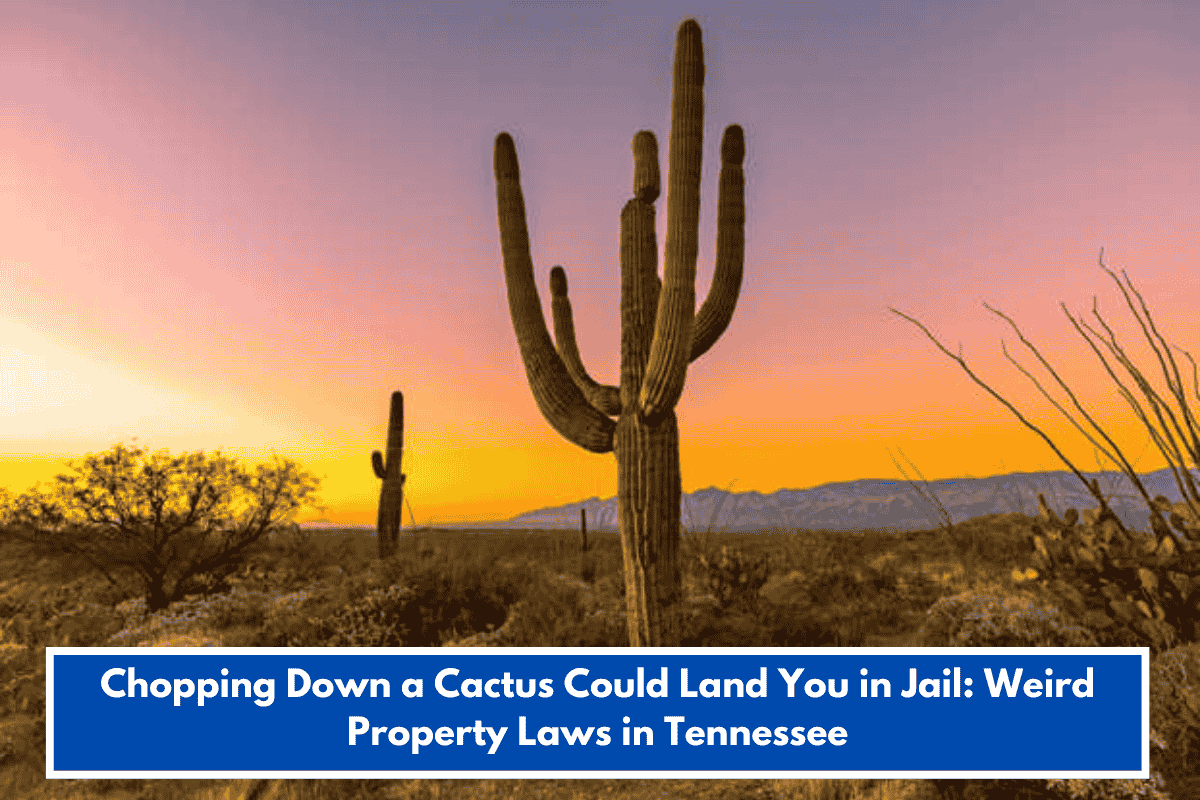Here are 11 reasons why living in Oklahoma might not be for everyone:
- Harsh Weather Conditions
Oklahoma experiences extreme weather, including very hot and muggy summers, frequent tornadoes in spring and summer, and icy winter storms that can make driving dangerous. The weather can also change rapidly and drastically. - Boring Scenery
Much of Oklahoma is prairie land that turns brown in winter and summer heat, offering long stretches of open, unvaried landscapes that might feel monotonous for some. - Weak Infrastructure
Oklahoma ranks lower in infrastructure quality, with many roads and highways showing wear and potholes. Rural areas often rely on dirt roads that become unusable when wet, and many cities lack sidewalks or have poorly maintained amenities. - Lower Quality Education
Despite strong universities, Oklahoma’s K-12 education ranks near the bottom nationally due to limited funding, larger class sizes, and lower teacher salaries. The state spends far less per student compared to many others. - Lack of Big Cities
Oklahoma City and Tulsa are the only major cities, but neither ranks among the largest US metros. Those craving the amenities and energy of a sprawling metropolis may find Oklahoma less appealing. - Economic Disparities and Poverty
Oklahoma has one of the highest poverty rates in the country (around 14.9%), with many low-income residents, especially among Native American communities and minorities. Wealth distribution remains uneven. - Higher Crime Rates in Urban Areas
Crime can be a concern, especially in Oklahoma City and Tulsa, which have crime rates above the national average. Oklahoma has one of the higher murder rates in the U.S.. - Limited Public Transportation
Outside of limited services in major cities, public transit is minimal or nonexistent, making a car essential for most residents. This can add to expenses and inconvenience. - Strong Religious Sentiments
Oklahoma is part of the Bible Belt, where conservative religious views are prevalent. Non-religious or people with different beliefs may find it challenging socially, and some legislation reflects these conservative values. - Prevalent Racism and Social Issues
Racial disparities and tensions persist, influenced by historical and social factors. Oklahoma struggles with systemic issues in criminal justice, health care, and education, disproportionately affecting minority populations. - Limited Food and Cultural Scene
The local food scene is often described as underwhelming, with many restaurants focusing on fast food or casual dining. Fine dining or farm-to-table experiences are harder to find compared to larger urban areas.
These factors collectively reflect some of the challenges of living in Oklahoma, making it less suitable for those seeking diverse urban experiences, stronger social inclusion, or more temperate and predictable weather.
SOURCES
[1](https://www.travelsafe-abroad.com/pros-and-cons-of-living-in-oklahoma/)
[2](https://thehonestlocal.com/pros-cons-of-living-oklahoma-moving/)
[3](https://www.reddit.com/r/oklahoma/comments/1apyo8u/what_is_the_pros_and_cons_of_living_in_oklahoma/)
[4](https://www.redfin.com/blog/pros-and-cons-of-living-in-oklahoma/)
[5](https://www.apartmentguide.com/blog/pros-and-cons-of-living-in-oklahoma/)

